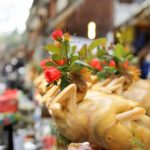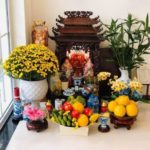The worship of the Kitchen God is a unique cultural feature in the spiritual life of Vietnamese people, not only on the occasion of the 23rd of the twelfth lunar month but also on a daily basis. Let’s explore the meaning, rituals, and prayers, along with some notes on daily offerings to the Kitchen God.
1 The Significance of Daily Worship of the Kitchen God
For a long time, the worship of the Kitchen God, also known as the Land God and the Stove God, has been an integral part of Vietnamese spiritual practices. This tradition stems from the belief in these three deities’ crucial roles in governing land, kitchens, and family affairs.
Daily offerings to the Kitchen God are seen as a way of expressing hopes for a fortunate and harmonious year, filled with blessings. It is also a means of showing gratitude to the Gods for their protection and blessings of prosperity and smooth sailing in all endeavors.
 Significance of Daily Worship of the Kitchen God
Significance of Daily Worship of the Kitchen God
2 How to Worship the Kitchen God Daily
Compared to the more elaborate rituals performed on the 23rd of the twelfth lunar month, daily offerings to the Kitchen God are relatively simple. Prepare some sweet porridge, fruits, and a few vegetarian or meat dishes as offerings.
Additionally, you will need to prepare three cups of water and three cups of wine to be placed on the Kitchen God’s altar. These cups should be replaced with fresh ones daily, and the altar should be kept clean and maintained with reverence.
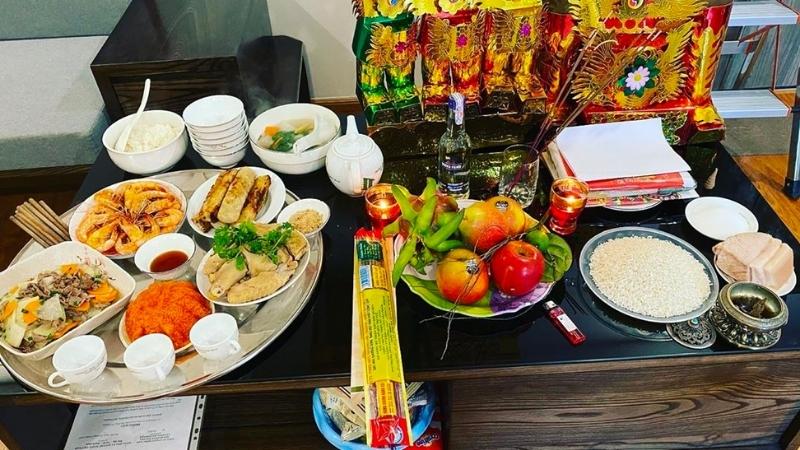 How to Worship the Kitchen God Daily
How to Worship the Kitchen God Daily
3 Prayer for Daily Worship of the Kitchen God
Nam Mo A Di Da Phat! (3 times)
I bow to the Nine Directions of Heaven, the Ten Directions of the Buddha, and the Buddha of the Ten Directions.
I respectfully bow to the East Kitchen Life-Governing Stove Palace God.
We, the faithful, are:…
Residing at:…
Today is the … day of the … month of the … year…
We, the faithful, sincerely prepare incense, flowers, and offerings, along with hats and clothes, to present to the Holy God. We light a heartfelt incense stick and bow in reverence.
We respectfully invite the East Kitchen Life-Governing Stove Palace God to manifest before the altar and receive these offerings.
We humbly ask the Holy God to forgive any offenses we may have committed during the past year. We pray for blessings of fortune and health for our entire family, young and old, and for all our endeavors to be blessed with peace and prosperity.
Our offerings are humble, but our hearts are sincere. We bow and pray, hoping that the Holy God will protect and bless us.
Nam Mo A Di Da Phat! (3 times)
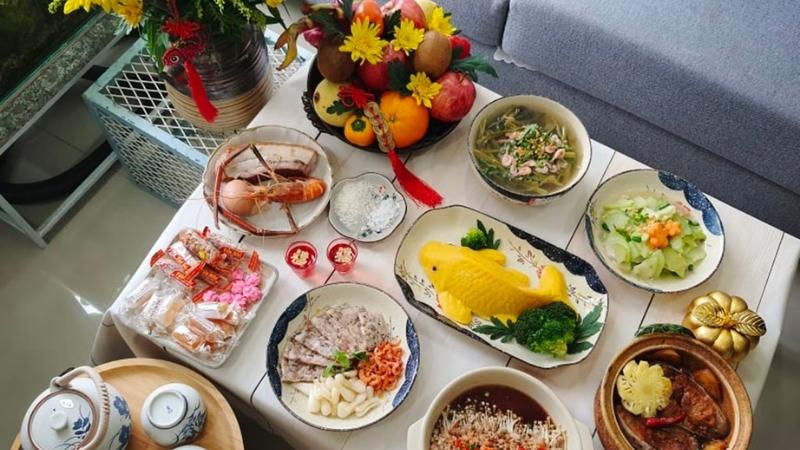 Prayer for Daily Worship of the Kitchen God
Prayer for Daily Worship of the Kitchen God
For reference: Most accurate and up-to-date in 2024
4 Prayer for the Kitchen God on the 1st and 15th of the Month
The prayer for the Kitchen God on the 1st and 15th of the month does not differ significantly from the daily prayer, and you can even use the daily prayer to worship the Kitchen God on the 23rd of the twelfth lunar month.
Therefore, you can use the above daily prayer to worship the Kitchen God on these days.
 Prayer for the Kitchen God on the 1st and 15th of the Month
Prayer for the Kitchen God on the 1st and 15th of the Month
5 Notes on Worshipping the Kitchen God
When worshipping the Kitchen God, keep in mind the following notes:
- According to Feng Shui expert Nguyen Manh Linh, the altar for the Kitchen God is usually placed in the kitchen. If your family has a separate altar for the Kitchen God, you can set up the offering tray there. If not, place it on the ancestral altar, but avoid placing it on the balcony or the Buddhist altar.
- Avoid buying excessive amounts of votive paper offerings with the belief that more offerings will bring more blessings. This practice can be costly and environmentally harmful. Instead, consider donating the money to charitable causes to create blessings.
- Do not fry or cook any type of fish or other offerings for the Kitchen God. It is considered a serious taboo to catch and fry carp for this purpose. If possible, offer live fish and then release them, or use paper fish instead.
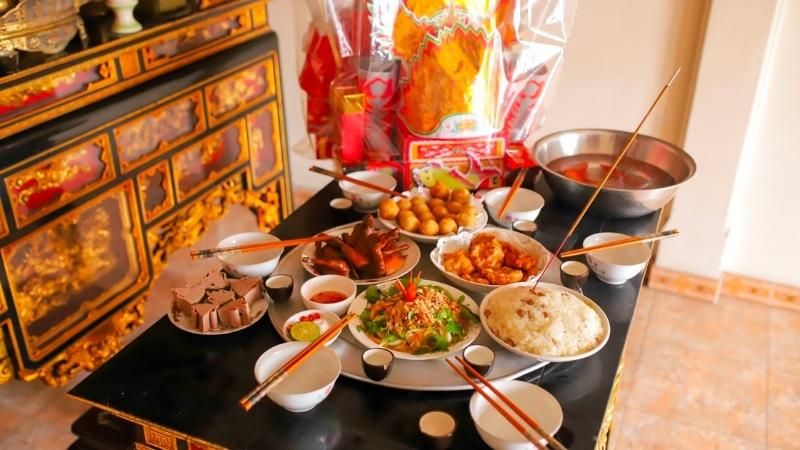 Notes on Worshipping the Kitchen God
Notes on Worshipping the Kitchen God
The above information summarizes the daily worship of the Kitchen God. We hope you find it helpful!
Choosing hen for incense lighting. When to choose a rooster and when to choose a hen, many people still don’t know.
In conclusion, the ritual of lighting incense with roosters and hens in Vietnamese culture holds immense symbolic significance. It is a way of communicating with the spiritual realm, seeking blessings, and honoring ancestors. This captivating tradition adds depth and charm to Vietnam’s rich cultural heritage.

























